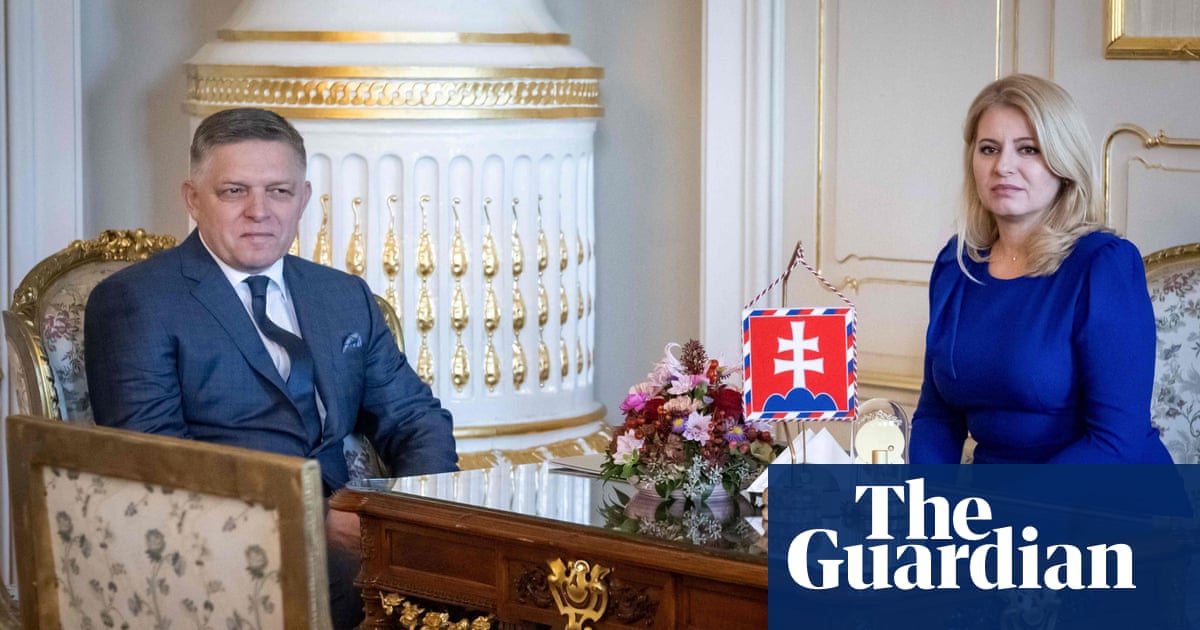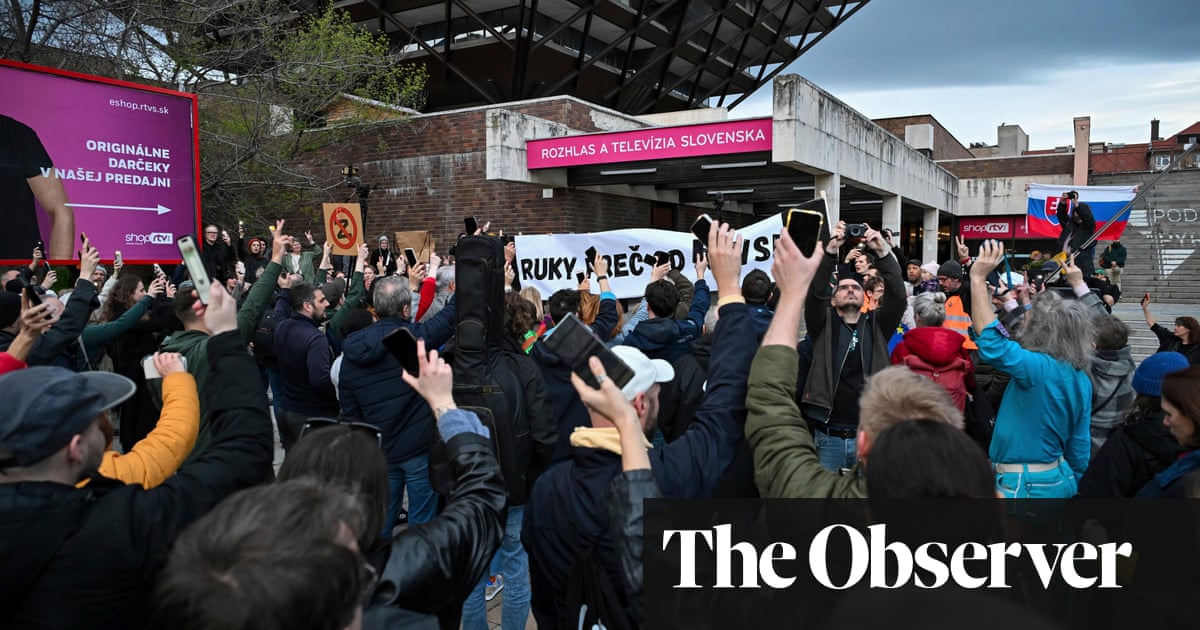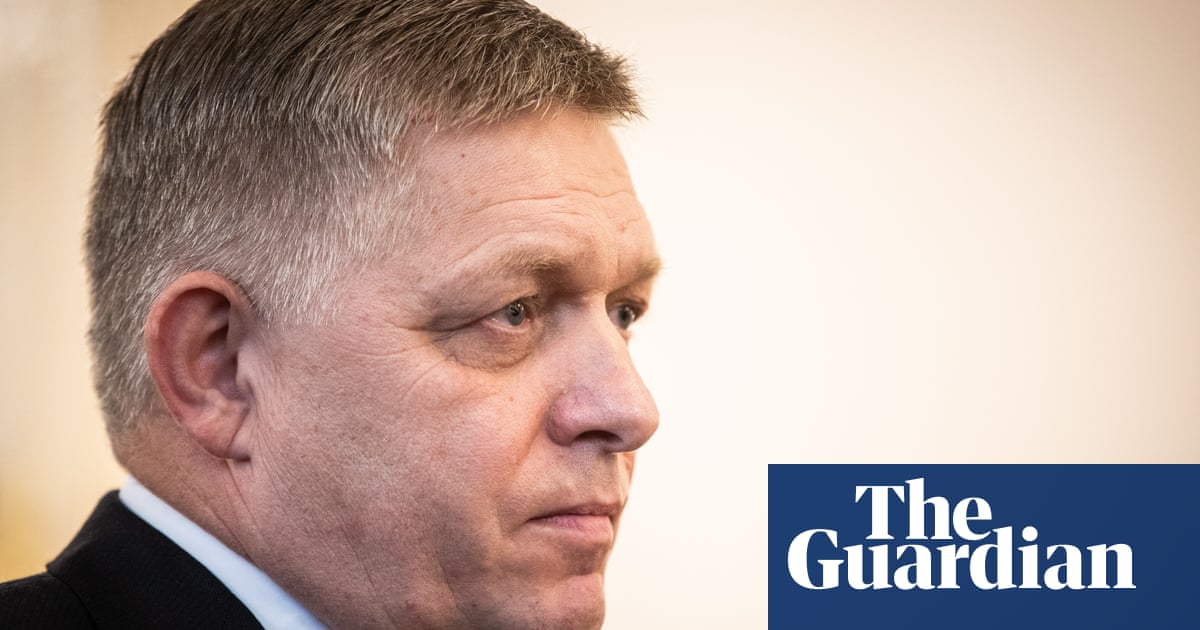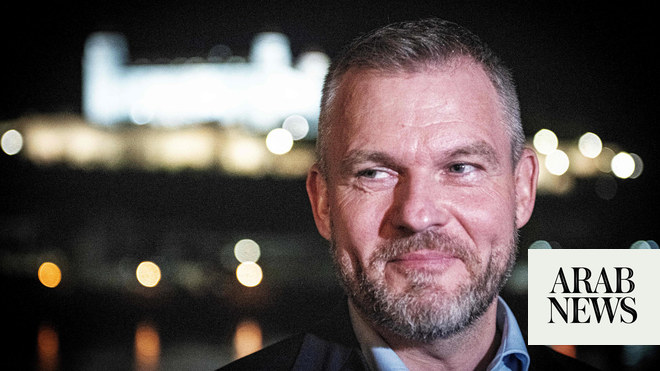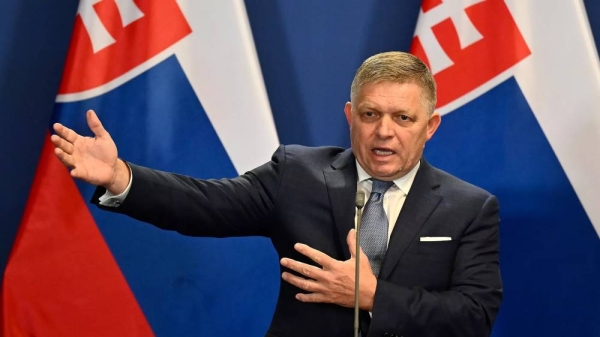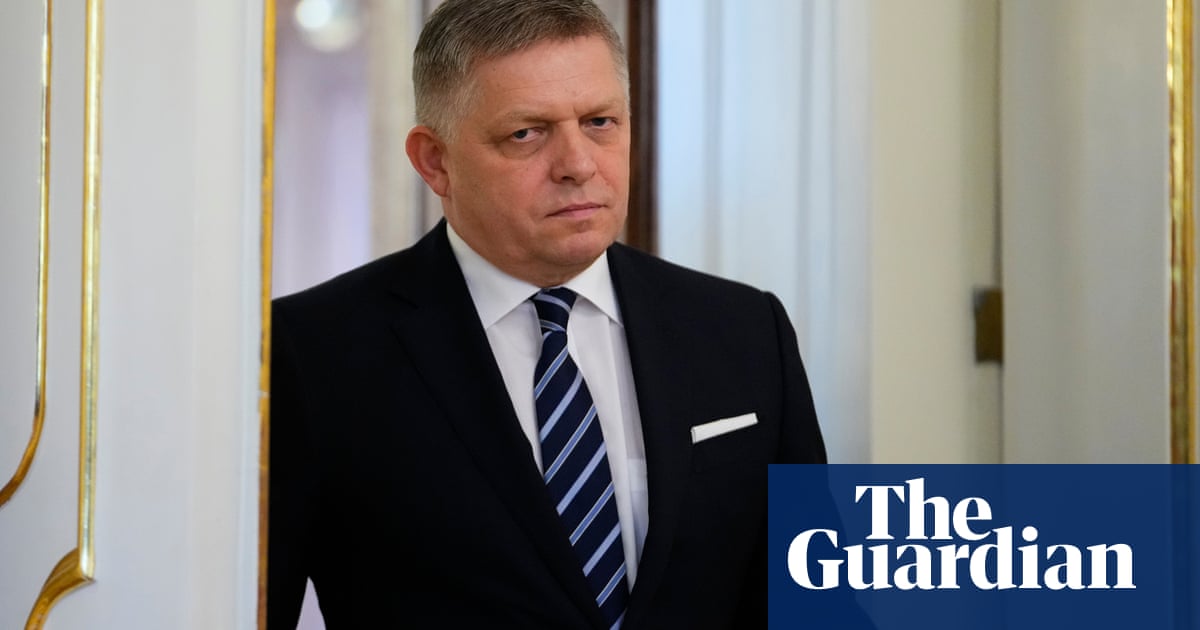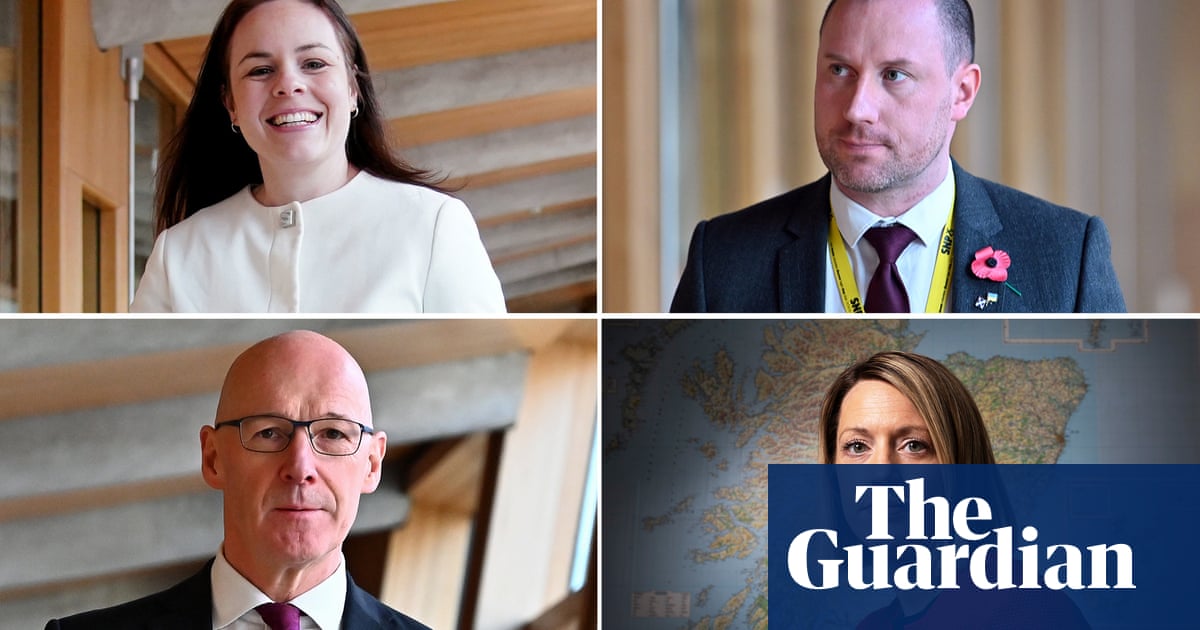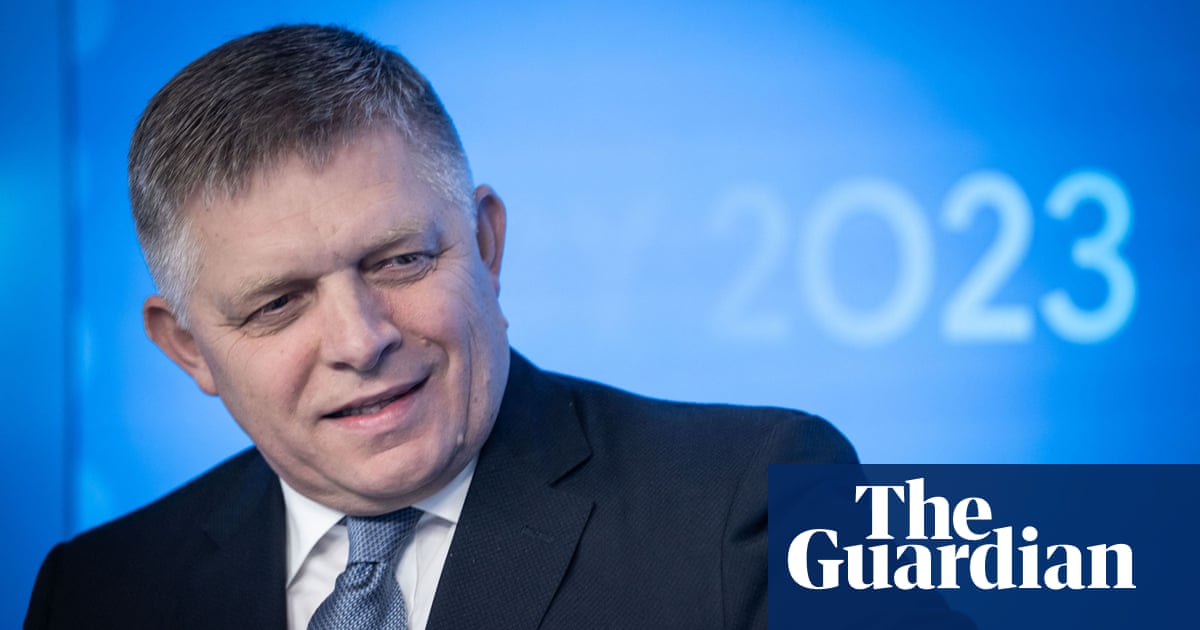
Slovakia’s president, Zuzana Caputova, on Monday handed the country’s former prime minister Robert Fico a mandate to start negotiations to form a coalition government after his Smer-SD party won almost 23% of the vote in weekend elections.
If he succeeds, the populist, pro-Russian leader’s fourth term as prime minister could have significant ramifications for Slovakia’s military support for Ukraine, EU unity and cohesion, and the rule of law in the central European country.
Who is Robert Fico?
Born into a working-class family on 15 September 1964, Fico – a lawyer by profession – began his political career with the Communist party shortly before the 1989 Velvet Revolution that led to the breakup of former Czechoslovakia.
He was Slovakia’s representative to the European court of human rights (ECHR) from 1994 to 2000 and set up his centre-left Smer-SD party in 1999 after being turned down for a ministerial post by the Democratic Left (SDL), the Communists’ political heirs.
Smer won a landslide victory in 2006, catapulting Fico into the prime minister’s seat two years after Slovakia joined the EU. In 2009, he led his country into the eurozone, but was unable to form a coalition the following year despite winning elections.
He scored another landslide in 2012 after the fall of a centre-right coalition over corruption allegations, and won again in 2016 – but had to resign two years later amid mass protests over the murder of an investigative journalist and his fiancée.
Embroiled in allegations of corruption he has always denied, Fico is brash and outspoken, with a penchant for bodybuilding, football and fast cars. He has called Slovak journalists “dirty anti-Slovak prostitutes” and Caputova “a US puppet”.
He admires both Vladimir Putin, saying he would not permit the Russian president’s arrest under an international warrant if he came to Slovakia, and Hungary’s illiberal leader, Viktor Orban, “who defends the interests of his country and his people”.
What does he want?
Fico has said he will not send “another bullet” to help Ukraine fight Russian aggression, labelled sanctions against Moscow “useless” and pledged to veto a Ukrainian application to join Nato.
But, for all his forthright declarations, the Smer leader is also a tactician.
In a three-decade career, he has navigated successfully between mainstream, pro-EU positions and a fiercely nationalist, anti-western rhetoric destined mainly for domestic consumption, proving more than willing to change tack depending on public opinion or political reality.
Saying he only has Slovak interests at heart, Fico has during his time in opposition – and on the campaign trail – been outspoken, savaging the EU and international NGOs, insulting his rivals, falsely alleging a coup plot and claiming the vote would be rigged.
He is also fiercely opposed to immigration – a key factor in his 2016 election win – and rejects “a distinct Muslim community in Slovakia”. More recently, he has criticised same-sex marriage and described adoption by same-sex couples as a “perversion”.
He became the country’s most prominent voice against masks, lockdowns and vaccination during the Covid pandemic, and has exploited high levels of pro-Russian sentiment in Slovakia to undermine the government’s pro-western course.
What coalition is most likely to emerge?
Most analysts predict Fico will try to form a coalition with the moderate Hlas – a spin-off from Smer formed after Fico’s forced resignation in 2018 – and the nationalist, pro-Russian Slovak National party (SNS), with which he has previously governed.
A fourth party, the centrist KDH, may also find a place in such an alliance, experts have said, but the core three-party grouping alone would have a slim but functioning majority of 79 seats in Slovakia’s 150-seat parliament.
What is likely to happen with Fico in power?
It’s not easy to predict. Some observers warn of a likely onslaught on the rule of law in Slovakia, with attacks on an independent judiciary, media and minority rights like those seen in Hungary and Poland leading to bitter disputes with the EU.
Arms shipments to Ukraine from Slovakia – which has contributed 13 MiG fighters to the Ukrainian war effort – seem almost certain to slow, if not halt altogether, analysts say, although that may not prove significant since its spare stocks are now low.
Quite how far Fico will ally himself with Hungary’s Viktor Orbán and challenge the EU’s fragile consensus – not just on military backing for Kyiv, but on other hot-button issues including migration and the green transition – remains to be seen.
A few analysts fear the worst. Others stress that Fico has in the past steered pragmatically clear of fundamental or damaging disagreements with his country’s main EU and Nato partners, and may well choose to do so again.
The likely presence in the coalition of the more moderate Hlas, which has backed the EU’s position on Ukraine and said arms deliveries are good for Slovak industry, plus the absence of the ultra-right Republika – which failed to win any seats – should help.




